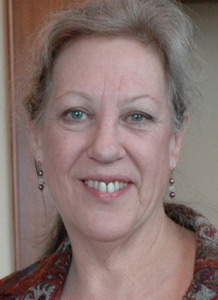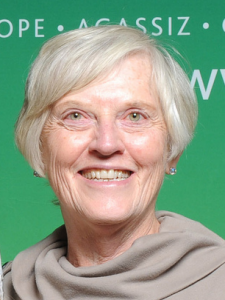Print Edition: October 31, 2012
The Faculty and Staff Association (FSA) recently held an Extraordinary General Meeting to discuss upcoming collective bargaining with the administration. Virginia Cooke, FSA president, and Vicki Grieves, FSA chief negotiator, shared some of their thoughts surrounding the issues of funding, services and salary freezes.
 So what was the result of your EGM?
So what was the result of your EGM?
Vicki Grieves: The members of our Faculty and Staff Association have given us approval to enter into contract talks with the university.
Virginia Cooke: Something you need to know though, is that we are very unusual in that our faculty and our staff all belong to the same union so . . . you’re not going to have factions resulting in students losing classes because the support staff can’t get what they want. With us it’s all or nothing.
Do you feel like this gives you an advantage when bargaining?
Cooke: With our own administration. It doesn’t make much difference in terms of the government, and I think all of us think the government is the problem now . . .
 Grieves: . . . in that the government controls the purse strings. So that puts our administration in a very untenable position, because they may agree that we deserve a raise because we haven’t had any salary increases for what amounts to five years.
Grieves: . . . in that the government controls the purse strings. So that puts our administration in a very untenable position, because they may agree that we deserve a raise because we haven’t had any salary increases for what amounts to five years.
They may be saying yes, give these guys a raise, but the only way you can increase anybody’s salary is through what they’re calling “cooperative gains,” which means if you’re going to give one employee group something you essentially have to go somewhere else in the institution and rob it.
Cooke: Or charge their students more.
Grieves: This is what makes negotiations tricky: long and drawn out and difficult for everybody.
Is anyone in your association [staff or faculty] in any current danger?
Cooke: No. Not that we know of . . . we have a really good communicative relationship with our administration. Things aren’t always rosy and we don’t always agree but it’s clear communication and open.
That doesn’t mean that people aren’t concerned . . . so we are vigilant. That’s probably the best word to use. But we’re being informed.
Anything to add, Vicki?
Grieves: Certainly recent settlements in other public sector unions have implications for our staff here. There haven’t been any recent settlements in faculty at other institutions; we’re all in the position of bargaining at the same time, which may work to our advantage.
And the other kind of wildcard I think is that we’ve got what appears to be an outgoing provincial government. It’s difficult to predict what their agenda is in this.
Some fairly big bargaining units settled, and did get some of the salary increase they were looking for recently, [so we may want ] to settle while the settling’s good.
Cooke: [Also note that] our salaries have been frozen by this government for four years out of the last 10—and it will be five coming up this year—not in a row, but they were frozen. Then we had a little bit of an increase.
Grieves: And the little bit of an increase didn’t even bring us up to the cost of living.
Cooke: We’re not alone. We’re not saying that everybody has done wonderfully, but . . . it becomes increasingly difficult to keep and attract good faculty when they could go almost anywhere else . . . and get much more.
Grieves: And we don’t really have a lot of budget to hire more faculty either, yet we’re under pressure to increase student spaces, so that’s going to have some consequences for students . . . bigger class sizes, burnt-out faculty. I’m not saying that’s happening, but it could.
Cooke: The government set certain target for full time equivalent students (FTEs) and year after year we exceed it, unlike a lot of institutions, because the valley is growing. But that doesn’t mean that they give us more money for those additional students . . . we’ve tried to be very open access but in the last few years we’ve had to cut off admission dates sooner and sooner, students have been in the horrible position of being on waitlists . . . maybe extending their degree another year.
Do instructors feel any pressure from the administration to extend their class sizes?
Grieves: We got, in my area, a letter or a memo from the dean in late August or early September, saying, “It would be really great if you guys could exceed your class maximums and let as many students on the waitlist in as possible in order to meet our FTE targets and accommodate as many students as we can.”
And that’s a real double-edged sword for students, because if you suddenly have 40 people in one class you’re not going to get as much individualized attention as in a class with 22.
Cook: I think the main point here is that everyone—faculty and administration—are trying to juggle the desire to accommodate students who really want and need courses with the need to keep those classes small and give students maximum personal attention. I’m not negating Vicki’s example here, but I don’t want to convey that we faculty are under great pressure to teach large classes.
So where does that leave the faculty and staff going forward?
Cooke: Before the end of the month, I will have to send a letter to our president to say that we are ready to open bargaining. That’s pretty much what the letter says . . . basically it says, “we’re ready now, you guys come to the table.”
Vicki, who is our chief negotiator, will get her team together . . .
Grieves: . . . and we’ll come with the proposals, and that was the point of the EGM . . . to have those bargaining proposals approved by the membership before we went forward with them, and no doubt management will have proposals too.
Cooke: It was basically priorities, because we didn’t have [everyone there] . . . there was some lively discussion, because not everybody agreed with it.
Grieves: It’s very difficult when you have a membership this diverse, when it seems like focusing on the needs of one group may be infringing on the rights of another group, and so it’s quite an interesting process.
When you say different groups, are you referring to faculty versus staff?
Cooke: Sometimes, but sometimes different groups of faculty or staff have different ideas or needs.
Will discussions of rank and tenure factor into the discussions at all?
Cooke: We’ve been having ongoing meetings with faculty about concepts of rank and tenure and we’re still sorting out the details of that but it’s pretty public knowledge that we’ve been talking about it.
Grieves: Tenure is not the issue as much as rank and promotion is, but they’re all intertwined.
Are there any feelings that a strike could be imminent?
Grieves: No. It’s impossible to predict the outcome of all of this, but our institution has a long history of bargaining in good faith, and we have always shown respect on both sides. We don’t expect it to be any different this time. As long as bargaining continues in good faith, and the process of bargaining somehow recognizes the service we provide and reflects the fact that we know our wages are falling and have lost buying power in effect because of a lack of any increases, I don’t think there’s much appetite for a strike.
Cooke: Well, there isn’t an appetite for a strike, and I guess my one proviso would be that—given this government’s attitude toward what they call public sector workers—who knows whether many of the faculty in the province may not feel they have to get this government’s attention to be taken seriously.
Grieves: And there are a lot of us.
Cooke: I would hate if they turned our relationship into what they have going with the British Columbia Teacher’s Federation (BCTF). That’s pitiful, what they’ve got going there. So that’s not what anybody wants. I would only temper Vicki’s reassurance with the caution that, at some point down the road, if we are being denigrated or ignored, we might stand up on our hind legs and say, “Hey, wait a minute,” and there could be a strike vote. But if I were a student I wouldn’t start shaking in my boots right now.
Grieves: Especially because it would take a while for any of this to develop. Before any of that could happen, bargaining would have to precede the pace, then there would have to be a strike vote, which takes a while, so I certainly do not see any imminent danger.
Cooke: I think faculty and staff both feel very strongly that they would not be willing to have people turn around to them again and say, “Your salaries are frozen.” That’s not what we’re anticipating, given that there seems to be some movement.
Is there anything else that students should be aware of during this process?
Cooke: I think they need to be aware that the process is going forward and that everyone, in the tradition of this place, has their best interests at heart.
This interview has been edited for length and clarity.

